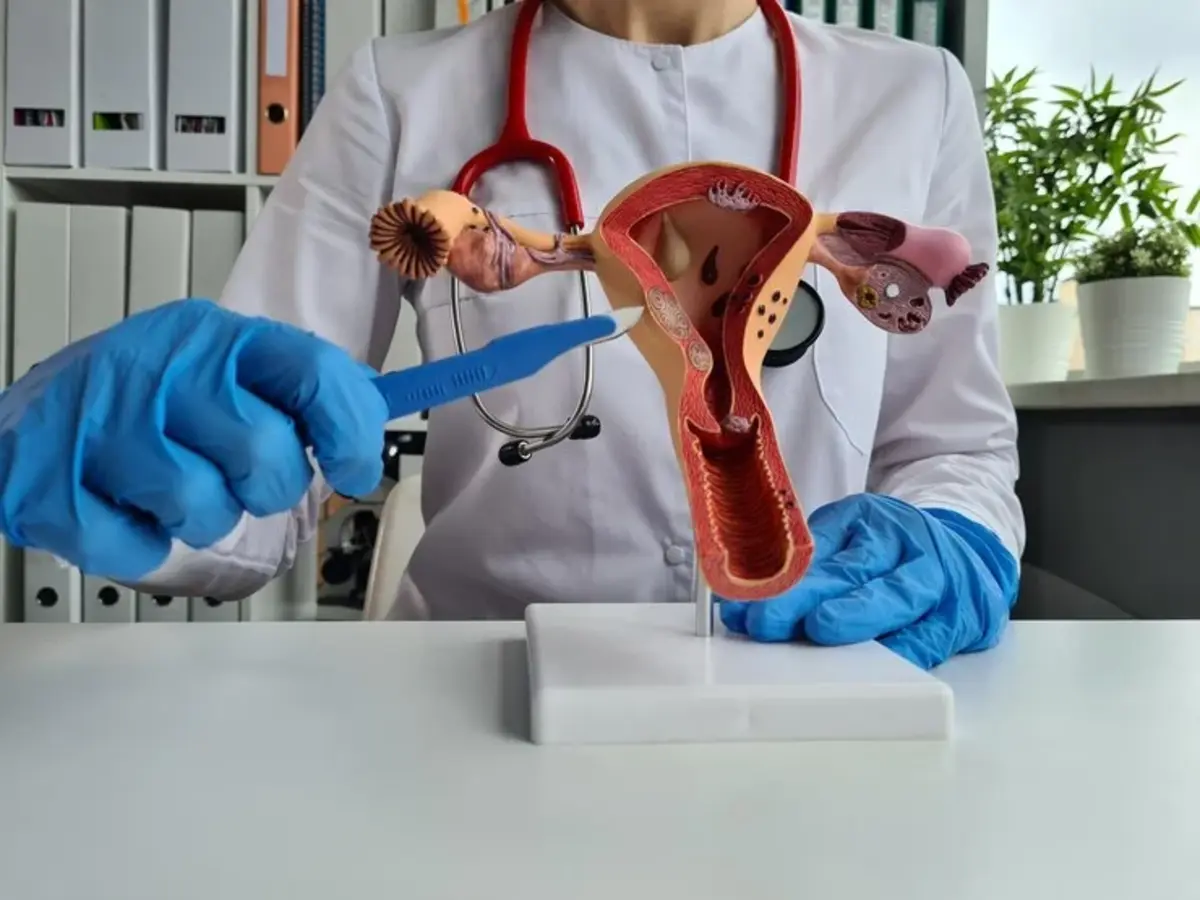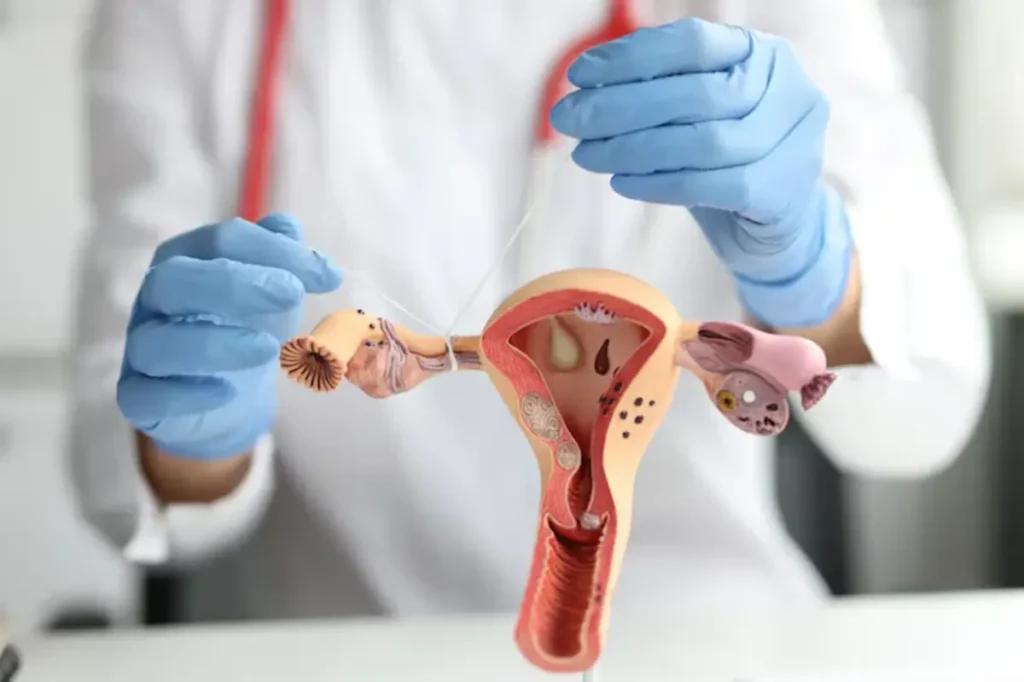-
Ganesh Talkies, Kolkata
Ganesh Talkies, Kolkata

Explore the most common reasons for a hysterectomy, from fibroids to cancer. Learn how one of the best lady gynecologists can help guide your decision.

A hysterectomy is a significant medical procedure that involves the removal of the uterus, and in some cases, the ovaries, fallopian tubes, and cervix. It is a decision that many women face due to various medical conditions, and understanding the reasons behind it can help women make informed choices about their health. This post aims to explain the most common reasons a hysterectomy may be recommended and how women can approach the decision with knowledge and confidence.
If you’re considering a hysterectomy, it’s important to consult with a best lady gynecologist to fully understand your options, the risks, and the benefits of this procedure.
A hysterectomy involves the surgical removal of the uterus, and sometimes other surrounding organs, depending on the medical condition being treated. The surgery can be done in various ways, including:
The type of hysterectomy recommended will depend on your specific health condition, the size of the uterus, and your doctor’s expertise.

While the decision to undergo a hysterectomy can be life-changing, it is often the best solution to improve health and quality of life. Let’s look at the most common reasons why a best lady gynecologist might recommend this procedure.
Uterine fibroids are non-cancerous growths that develop in the uterus. They are common in women of reproductive age and can cause various symptoms, including:
In cases where fibroids are large, cause significant symptoms, or are resistant to other treatments, a hysterectomy may be necessary to remove them and prevent further complications.
Endometriosis is a condition where the tissue that lines the inside of the uterus grows outside of it, often affecting the ovaries, fallopian tubes, and other pelvic organs. Symptoms can include:
In severe cases, when endometriosis does not respond to medication or other treatments, a hysterectomy may be recommended to remove the uterus and provide relief from the chronic pain and other complications.
Certain types of cancer, including uterine, cervical, or ovarian cancer, may require a hysterectomy as part of the treatment plan. Removing the uterus and other affected organs helps stop the spread of cancer and improves the chances of recovery. Your best gynecologist will assess the stage and type of cancer to determine the most appropriate surgical approach.
Some women experience long-term pelvic pain that is difficult to manage with other treatments. This can be due to various conditions such as endometriosis, fibroids, or pelvic inflammatory disease. If other treatments have not worked and the pain significantly affects a woman’s quality of life, a hysterectomy may be considered as a last resort.
Abnormal uterine bleeding can occur when there is heavy or irregular bleeding between periods, or after menopause. This condition can be caused by a number of factors, including hormonal imbalances, fibroids, or even precancerous changes in the uterine lining. If bleeding cannot be controlled with medications, a hysterectomy may be recommended.
A prolapsed uterus occurs when the uterus slips down into the vaginal canal due to weakened pelvic muscles and ligaments. This condition can result in symptoms like urinary incontinence, difficulty with bowel movements, and a feeling of pelvic fullness. In severe cases, a hysterectomy may be needed to correct the problem.
Infections such as pelvic inflammatory disease (PID) or chronic inflammation can cause long-term damage to the uterus and surrounding organs. If antibiotics or other treatments do not resolve the issue, a hysterectomy may be necessary to remove the affected organs and prevent further complications.
In some cases, ovarian cysts can cause persistent pain, bloating, or discomfort. If these cysts do not go away with treatment or continue to cause symptoms, a hysterectomy may be performed along with the removal of the ovaries to prevent future cyst formation.
While a hysterectomy is a common procedure, it is typically considered only after other treatment options have been exhausted. Your best lady gynecologist in Kolkata will recommend this surgery if:

1. Will I still be able to have children after a hysterectomy?
No, a hysterectomy involves the removal of the uterus, which means pregnancy is no longer possible. However, in some cases, if only the uterus is removed (and not the ovaries or fallopian tubes), a woman may still be able to conceive with the help of assisted reproductive technologies like egg freezing or surrogacy.
2. How long is the recovery time after a hysterectomy?
Recovery time varies depending on the type of surgery and the individual’s health. For an abdominal hysterectomy, recovery typically takes 6-8 weeks. Vaginal or laparoscopic surgeries may have a quicker recovery time, around 4-6 weeks.
3. What are the risks of a hysterectomy?
As with any surgery, there are risks involved, including bleeding, infection, injury to surrounding organs, and complications from anesthesia. However, these risks are minimized with proper medical care and expertise.
4. Can I resume my normal activities after a hysterectomy?
You may need to avoid heavy lifting and strenuous activities for several weeks after surgery. Most women can return to light activities and work within a few weeks, but it’s essential to follow your doctor’s instructions for a full recovery.
5. Will I go through menopause after a hysterectomy?
If the ovaries are removed during the procedure, menopause will occur immediately. If the ovaries are preserved, you may go through menopause at the usual age. Hormone replacement therapy (HRT) may be recommended for managing symptoms if the ovaries are removed.
A hysterectomy can be a life-changing procedure, but it is often the most effective solution for many gynecological issues. By understanding the most common reasons for this surgery, women can make informed decisions about their health and well-being. If you are facing the possibility of a hysterectomy, it’s crucial to consult with a best lady gynecologist in Kolkata to explore all available options and discuss the best course of action for your unique situation.
Every woman’s health journey is different, and with the right information, support, and care, the decision to undergo a hysterectomy can lead to a healthier and more fulfilling life. Take control of your health today, and trust in the expertise of medical professionals to guide you through this important decision.